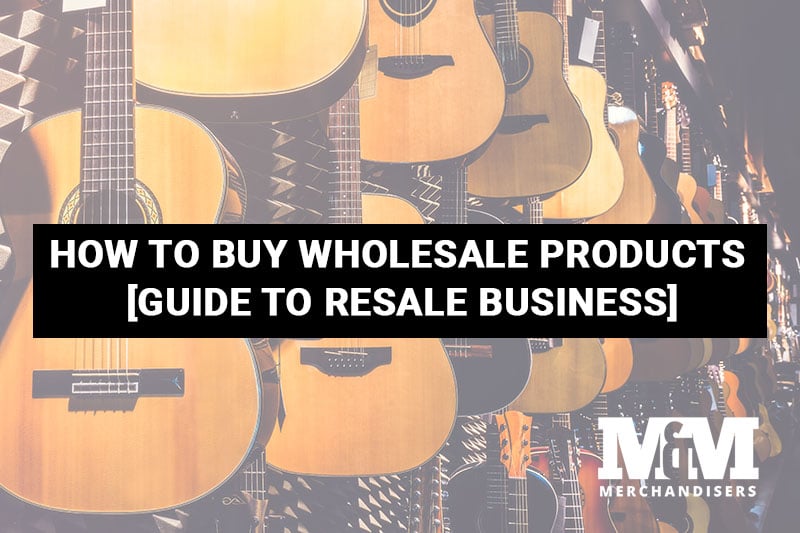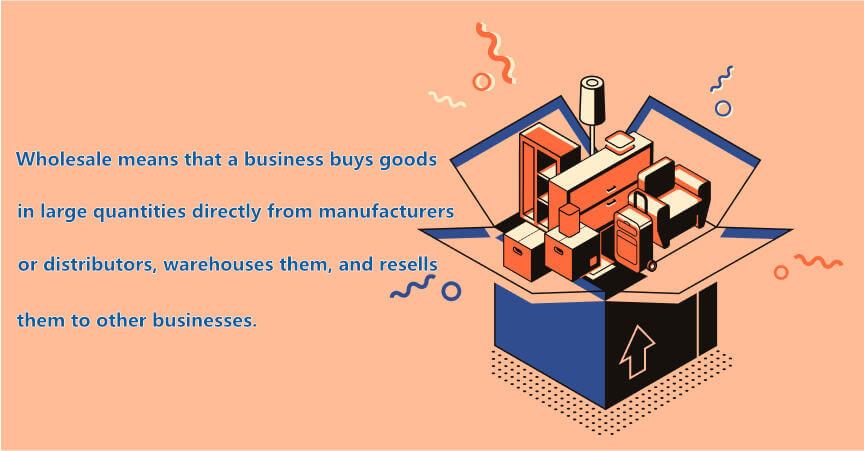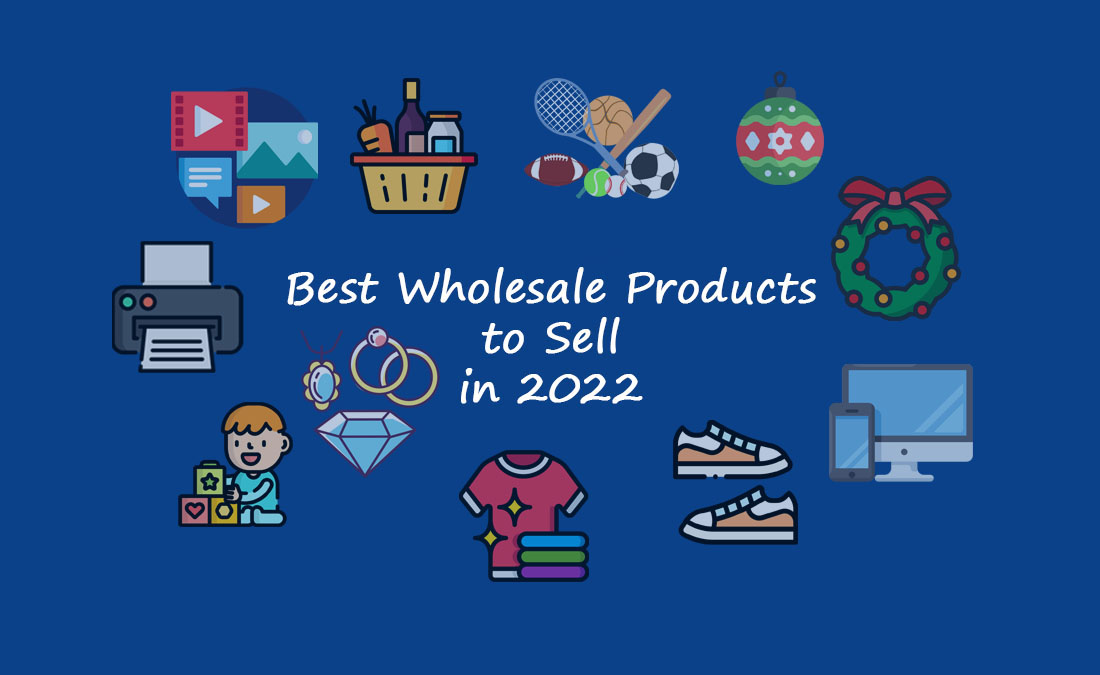What is Wholesale Shopping and How Can You Benefit?
Wholesale shopping is a business model that allows individuals and companies to purchase products in bulk at discounted prices. This approach has been a cornerstone of retail and e-commerce for decades, providing a cost-effective way to acquire large quantities of goods. For businesses, wholesale shopping can be a game-changer, offering a competitive edge in the market. By buying in bulk, companies can reduce their costs, increase their profit margins, and improve their overall bottom line.
One of the primary benefits of wholesale shopping is the ability to purchase products at significantly lower prices than retail. This is because wholesalers typically sell products in large quantities, which reduces their overhead costs and allows them to pass the savings on to their customers. Additionally, wholesale shopping provides access to a wide range of products, including hard-to-find items and specialty goods.
For individuals looking to start a business or expand their existing operations, wholesale shopping can be an excellent way to find products to sell. By purchasing items in bulk, entrepreneurs can resell them online or in-store, often at a significant markup. This approach can be particularly effective for those looking to start an e-commerce business, as it allows them to source products quickly and efficiently.
When searching for wholesale items, many people ask, “Where can I buy wholesale items?” The answer is that there are numerous wholesale marketplaces, both online and offline, that offer a vast array of products. Some popular options include Alibaba, Wholesale Central, and DHgate. These platforms connect buyers with suppliers from around the world, making it easy to find the products you need at competitive prices.
In addition to the cost savings and product variety, wholesale shopping also offers a range of other benefits. For example, many wholesalers provide drop shipping services, which allow businesses to sell products without holding any inventory. This approach can be particularly useful for e-commerce businesses, as it eliminates the need for storage and shipping.
Overall, wholesale shopping is a powerful tool for businesses and individuals looking to purchase products in bulk. By understanding the benefits and opportunities of wholesale shopping, entrepreneurs can make informed decisions about their purchasing strategies and take their businesses to the next level.
How to Find Reliable Wholesale Suppliers for Your Business
When searching for wholesale suppliers, it’s essential to find reliable partners who can provide high-quality products and excellent customer service. With so many options available, it can be challenging to know where to start. To find trustworthy wholesale suppliers, businesses should begin by researching potential partners thoroughly.
One effective way to research wholesale suppliers is to attend trade shows and industry events. These events provide a platform for businesses to connect with suppliers, learn about their products, and assess their reputation. Additionally, trade shows offer a chance to network with other businesses and gain insights into the industry.
Another approach is to utilize online directories and wholesale marketplaces. These platforms connect buyers with suppliers from around the world, making it easy to find products and compare prices. Some popular wholesale marketplaces include Alibaba, Wholesale Central, and DHgate. When using these platforms, it’s crucial to verify supplier credentials, including their business license, product certifications, and customer reviews.
Red flags to watch out for when researching wholesale suppliers include poor communication, low-quality products, and unrealistic pricing. Businesses should also be cautious of suppliers who require payment upfront or have a history of disputes with customers. By being aware of these potential pitfalls, businesses can avoid working with untrustworthy suppliers and find reliable partners who can help them succeed.
When evaluating potential wholesale suppliers, businesses should ask questions such as: What is your product return policy? Can you provide product samples? What is your shipping process? By asking these questions, businesses can gain a better understanding of the supplier’s operations and make informed decisions about their partnership.
In addition to researching suppliers, businesses should also consider factors such as product quality, pricing, and customer service. By finding a supplier who offers high-quality products at competitive prices and provides excellent customer service, businesses can build a strong partnership that drives success.
For those wondering “where can I buy wholesale items,” the answer is that there are numerous reliable wholesale suppliers available. By conducting thorough research, verifying supplier credentials, and evaluating potential partners, businesses can find trustworthy suppliers who can help them achieve their goals.
Top Wholesale Marketplaces to Explore for Your Business Needs
When searching for wholesale items, many businesses wonder “where can I buy wholesale items?” The answer is that there are numerous wholesale marketplaces that offer a wide range of products at competitive prices. In this section, we will explore some of the top wholesale marketplaces that businesses can use to find the products they need.
Alibaba is one of the most popular wholesale marketplaces, connecting buyers with suppliers from around the world. With over 150,000 suppliers and 40 million products, Alibaba offers a vast array of wholesale items, including electronics, clothing, and home goods. Alibaba’s platform allows businesses to search for products, compare prices, and contact suppliers directly.
Wholesale Central is another leading wholesale marketplace that offers a wide range of products, including wholesale clothing, electronics, and gifts. With over 1,000 suppliers and 10,000 products, Wholesale Central provides businesses with a convenient way to find the products they need. The platform also offers a supplier verification program, which helps to ensure that businesses are working with trustworthy suppliers.
DHgate is a popular wholesale marketplace that specializes in Chinese products. With over 30 million products and 2 million suppliers, DHgate offers a vast array of wholesale items, including electronics, clothing, and home goods. DHgate’s platform allows businesses to search for products, compare prices, and contact suppliers directly.
Other notable wholesale marketplaces include Worldwide Brands, SaleHoo, and Wholesale Hub. These platforms offer a wide range of products and suppliers, and can be a valuable resource for businesses looking to find wholesale items.
When using wholesale marketplaces, businesses should be aware of the potential drawbacks, including poor product quality, inadequate supplier research, and insufficient budgeting. By being aware of these potential pitfalls, businesses can avoid common mistakes and find reliable suppliers who can help them succeed.
In addition to wholesale marketplaces, businesses can also find wholesale items through trade shows, industry events, and online directories. By exploring these options, businesses can find the products they need and build strong relationships with suppliers.
The Pros and Cons of Buying Wholesale from Liquidation Sales
Liquidation sales can be a great way to find wholesale items at discounted prices. However, it’s essential to understand the pros and cons of buying from liquidation sales before making a purchase. In this section, we will explore the advantages and disadvantages of buying wholesale items from liquidation sales.
One of the primary advantages of buying from liquidation sales is the potential for significant cost savings. Liquidation sales often feature products at deeply discounted prices, which can be a great way to stock up on inventory or find deals on specific items. Additionally, liquidation sales can provide access to a wide range of products, including items that may be difficult to find elsewhere.
However, there are also some potential drawbacks to buying from liquidation sales. One of the main concerns is the condition of the products. Liquidation sales often feature products that are near the end of their life cycle or have been discontinued. This can result in products that are no longer in their original packaging or may have cosmetic damage.
Another potential drawback is the return policy. Liquidation sales often have strict return policies, which can make it difficult to return or exchange products that are not satisfactory. Additionally, liquidation sales may not offer the same level of customer support as traditional wholesale suppliers.
Despite these potential drawbacks, buying from liquidation sales can be a great way to find wholesale items at discounted prices. By understanding the pros and cons of liquidation sales, businesses can make informed decisions about whether this type of purchase is right for them.
When searching for wholesale items, many businesses wonder “where can I buy wholesale items?” Liquidation sales can be a great option for businesses looking for discounted prices on a wide range of products. However, it’s essential to do your research and understand the terms and conditions of the sale before making a purchase.
In addition to liquidation sales, businesses can also find wholesale items through traditional wholesale suppliers, online marketplaces, and trade shows. By exploring these options, businesses can find the products they need and build strong relationships with suppliers.
How to Negotiate the Best Wholesale Prices for Your Business
Negotiating wholesale prices is a crucial step in getting the best deals for your business. When searching for wholesale items, many businesses wonder “where can I buy wholesale items?” and how to negotiate the best prices. In this section, we will provide advice on negotiating wholesale prices, including understanding pricing structures, building relationships with suppliers, and using data to inform your negotiations.
Understanding pricing structures is essential to negotiating the best wholesale prices. Wholesale prices are typically based on the quantity of products purchased, with larger quantities resulting in lower prices per unit. However, other factors such as product demand, market conditions, and supplier costs can also impact pricing. By understanding these factors, businesses can make informed decisions about their purchasing strategy.
Building relationships with suppliers is also critical to negotiating the best wholesale prices. By establishing a strong relationship with a supplier, businesses can negotiate better prices, improve delivery times, and increase product quality. Suppliers are more likely to offer discounts and other incentives to businesses that are loyal and consistent in their purchasing habits.
Using data to inform your negotiations is also essential. By analyzing sales data, market trends, and supplier pricing, businesses can make informed decisions about their purchasing strategy. This data can be used to negotiate better prices, improve product selection, and optimize inventory management.
When negotiating wholesale prices, businesses should also be aware of the potential for discounts and other incentives. Suppliers may offer discounts for large orders, loyalty programs, or other promotions. By taking advantage of these incentives, businesses can reduce their costs and improve their profitability.
In addition to negotiating wholesale prices, businesses should also consider the total cost of ownership when making purchasing decisions. This includes factors such as shipping costs, inventory management, and product quality. By considering these factors, businesses can make informed decisions about their purchasing strategy and optimize their wholesale shopping experience.
By following these tips and strategies, businesses can negotiate the best wholesale prices for their needs. Whether you’re looking for wholesale items for your e-commerce business or brick-and-mortar store, understanding pricing structures, building relationships with suppliers, and using data to inform your negotiations can help you get the best deals.
Wholesale Shopping for E-commerce Businesses: Tips and Strategies
Wholesale shopping is a crucial aspect of e-commerce businesses, as it allows them to purchase products in bulk and resell them online. However, finding the right wholesale suppliers and navigating the wholesale shopping process can be challenging. In this section, we will provide tips and strategies for e-commerce businesses to succeed in wholesale shopping.
Product selection is a critical aspect of wholesale shopping for e-commerce businesses. When selecting products, businesses should consider factors such as demand, competition, and profit margins. They should also ensure that the products they choose are high-quality and align with their brand values.
Inventory management is another essential aspect of wholesale shopping for e-commerce businesses. Businesses should ensure that they have a robust inventory management system in place to track their stock levels, monitor their inventory turnover, and optimize their storage and shipping processes.
Shipping considerations are also crucial for e-commerce businesses that engage in wholesale shopping. Businesses should ensure that they have a reliable shipping partner that can deliver their products quickly and efficiently. They should also consider factors such as shipping costs, delivery times, and packaging requirements.
When searching for wholesale items, e-commerce businesses often wonder “where can I buy wholesale items?” The answer is that there are numerous wholesale marketplaces and suppliers that cater to e-commerce businesses. Some popular options include Alibaba, Wholesale Central, and DHgate.
In addition to finding the right wholesale suppliers, e-commerce businesses should also focus on building strong relationships with their suppliers. This can involve negotiating better prices, improving delivery times, and increasing product quality. By building strong relationships with their suppliers, e-commerce businesses can ensure a steady supply of high-quality products and improve their overall competitiveness.
Finally, e-commerce businesses should continuously monitor and adjust their wholesale strategy to ensure that it remains effective and efficient. This can involve tracking their sales data, monitoring their inventory levels, and adjusting their product selection and pricing strategies as needed.
Common Mistakes to Avoid When Buying Wholesale Items
When buying wholesale items, it’s essential to be aware of the common pitfalls that can lead to financial losses, damaged reputation, and wasted time. By understanding these mistakes, businesses can take proactive steps to avoid them and ensure a successful wholesale shopping experience.
One of the most significant mistakes is poor product quality. This can occur when businesses prioritize low prices over product quality, leading to defective or low-grade items that can harm their reputation and customer satisfaction. To avoid this, it’s crucial to research suppliers thoroughly, read reviews, and inspect product samples before making a purchase.
Another mistake is inadequate supplier research. This can result in partnering with unreliable suppliers who may not deliver products on time, provide poor customer service, or even scam businesses. To avoid this, businesses should verify supplier credentials, check for certifications, and read reviews from other customers.
Insufficient budgeting is another common mistake. Businesses may underestimate the costs of wholesale shopping, including shipping, storage, and handling fees. To avoid this, it’s essential to create a comprehensive budget that accounts for all expenses and to negotiate prices with suppliers.
Additionally, businesses should be cautious of overstocking, which can lead to wasted resources, storage space, and potential losses. To avoid this, businesses should carefully plan their inventory needs, monitor sales trends, and adjust their orders accordingly.
Furthermore, businesses should be aware of hidden fees and charges that can add up quickly. These may include fees for payment processing, shipping, and handling. To avoid this, businesses should carefully review supplier contracts and negotiate prices that include all fees.
Lastly, businesses should avoid not having a clear return policy. This can lead to difficulties in returning defective or unsold products, resulting in financial losses. To avoid this, businesses should establish a clear return policy with suppliers and ensure that it’s included in the contract.
By being aware of these common mistakes, businesses can take proactive steps to avoid them and ensure a successful wholesale shopping experience. Whether you’re looking for where can i buy wholesale items or seeking to improve your existing wholesale strategy, it’s essential to be informed and prepared to make the most of your wholesale shopping experience.
Maximizing Your Wholesale Shopping Experience: Best Practices
To get the most out of wholesale shopping, it’s essential to follow best practices that can help businesses achieve their goals and avoid common pitfalls. By implementing these strategies, businesses can maximize their wholesale shopping experience and take their operations to the next level.
First and foremost, it’s crucial to set clear goals for your wholesale shopping experience. This includes defining your target market, identifying the products you need, and determining your budget. By having a clear understanding of what you want to achieve, you can focus your efforts and make informed decisions.
Next, it’s essential to stay organized throughout the wholesale shopping process. This includes keeping track of your orders, monitoring inventory levels, and maintaining open communication with suppliers. By staying organized, you can avoid mistakes, reduce stress, and ensure a smooth wholesale shopping experience.
Another key best practice is to continuously monitor and adjust your wholesale strategy. This includes tracking sales trends, analyzing customer feedback, and adjusting your product offerings accordingly. By staying flexible and adapting to changes in the market, you can stay ahead of the competition and ensure long-term success.
In addition, it’s essential to build strong relationships with suppliers. This includes communicating effectively, negotiating fair prices, and resolving any issues that may arise. By building strong relationships with suppliers, you can ensure a stable supply chain, access to high-quality products, and preferential treatment.
Furthermore, businesses should take advantage of technology to streamline their wholesale shopping experience. This includes using online marketplaces, leveraging data analytics, and automating tasks where possible. By embracing technology, businesses can increase efficiency, reduce costs, and gain a competitive edge.
Finally, businesses should stay informed about industry trends and developments. This includes attending trade shows, reading industry publications, and participating in online forums. By staying informed, businesses can stay ahead of the curve, identify new opportunities, and make informed decisions.
By following these best practices, businesses can maximize their wholesale shopping experience and achieve their goals. Whether you’re looking for where can i buy wholesale items or seeking to improve your existing wholesale strategy, these tips can help you succeed in the competitive world of wholesale shopping.






